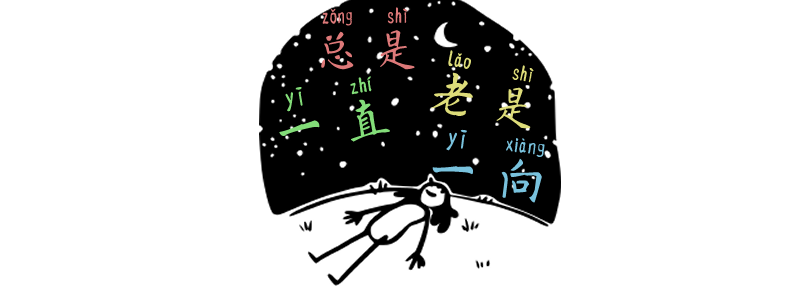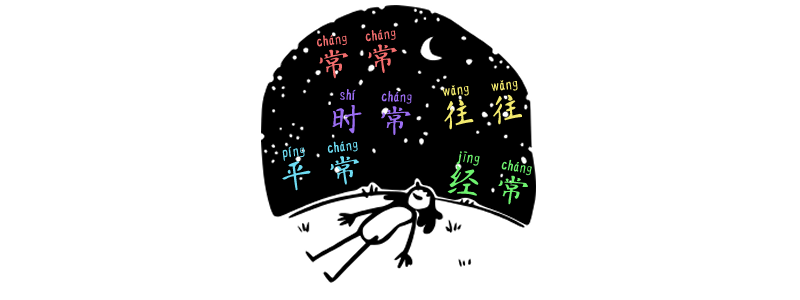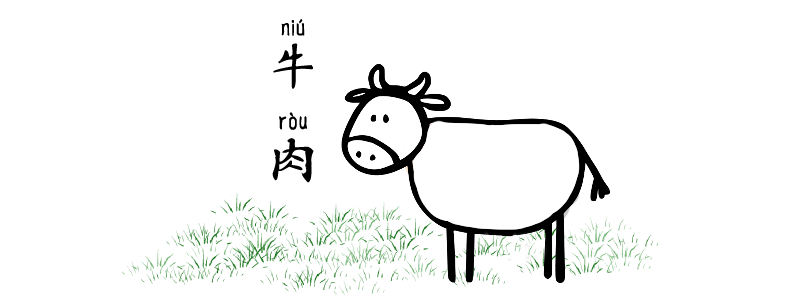Grammar Point:The emphatic adverb 可 kě is used in Chinese to add emphasis to a statement, often conveying a stronger attitude or emotion such as surprise, disagreement, or certainty. It is a casual way to stress a point or to express “indeed.” Structure 可 kě + V or Adj 可 kě is an informal emphatic adverb commonly used…
Category: HSK 5
“Indeed” in Chinese 3 – 倒是 dàoshì
Grammar Point:When 倒是 dàoshì is roughly translated as “indeed” in English, it’s used to emphasize or draw attention to a specific point in agreement. It highlights a particular detail or aspect of a situation, often to show support or alignment with an idea. Structure S + 倒是 dàoshì + Emphasis,Comment 他tā說shuō的de倒是dàoshì有yǒu道理dàolǐ, 這次zhècì就jiù聽tīng他tā的de吧ba他tā说shuō的de倒是dàoshì有yǒu道理dàolǐ, 这次zhècì就jiù听tīng他tā的de吧baHe does make a good…
“Still” in Chinese 3 – 依然 yīrán
Grammar Point:依然 yīrán is a Chinese adverb that means “still,” “yet,” or “as before.” It’s used to indicate that a particular situation or condition remains unchanged despite the passage of time or other circumstances. Structure S + 依然 yīrán + V 媽媽māma雖然suīrán已經yǐjīng退休tuìxiū, 她tā依然yīrán每天měitiān都dōu在zài學xué新xīn事物shìwù妈妈māma虽然suīrán已经yǐjīng退休tuìxiū, 她tā依然yīrán每天měitiān都dōu在zài学xué新xīn事物shìwùEven though my mother has retired, she still learns new things every…
News Practice – China implements Anti-Spy Law, foreign direct investment plunges over 70%
Click here to modify ↘️ the characters and pinyin 自由財經 編譯盧永山/綜合報導2023/08/09 12:09The original article is here This is the slow version. If you want to listen to the regular broadcasting speed, please adjust to 1.5 speed on the side. 中國Zhōngguó實施shíshī反fǎn間諜jiàndié法fǎ外國wàiguó直接zhíjiē投資tóuzī金額jīn’é暴跌bàodié逾yú7 成chéng中国Zhōngguó实施shíshī反fǎn间谍jiàndié法fǎ外国wàiguó直接zhíjiē投资tóuzī金额jīn’é暴跌bàodiē逾yú7 成chéng 中國Zhōngguó7 月份yuèfèn的de進出口jìnchūkǒu數據shùjù再次zàicì下降xiàjiàng, 再zài加上jiāshàng國內guónèi消費xiāofèi疲軟píruǎn, 製造業zhìzàoyè活動huódòng持續chíxù萎縮wěisuō, 房地產fángdìchǎn市場shìchǎng停滯tíngzhì不前bùqián, 甚至shènzhì外國wàiguó資本zīběn也yě對duì中國Zhōngguó失去shīqù興趣xìngqù, 經濟jīngjì前景qiánjǐng令人lìngrén擔憂dānyōu。 根據gēnjù自由亞洲zìyóuyàzhōu電台diàntái的de報導bàodǎo, 中國Zhōngguó國家guójiā外匯wàihuì管理局guǎnlǐjú(SAFE) 發布fābù的de最zuì新xīn數據shùjù顯示xiǎnshì, 今年jīnnián第二dìèr季度jìdù外國wàiguó直接zhíjiē投資tóuzī(FDI) 大幅dàfú減少jiǎnshǎo。 分析人士fēnxīrénshì認為rènwèi,…
Newspaper Formal Words
Here are some examples of Chinese informal words and their corresponding formal counterparts, commonly used in newspapers: A~G English Informal Word Formal Word absolutely not 肯定不 kěndìng bù 决非 juéfēi according to 按照 ànzhào 依 yī afraid to 恐怕 kǒngpà 恐 kǒng all 都 dōu 均 jūn, 皆 jiē a little bit 有點点 yǒudiǎn 稍…
Potential Complements Practice
TouchHover over the space to see the answers. Fill in the correct Potential Complements and verbs 你的nǐde車chē很hěn小xiǎo, ( 坐不下zuòbúxià) 五wǔ個ge人rén你的nǐde车chē很hěn小xiǎo, ( 坐不下zuòbuxià) 五wǔ个ge人rénYour car is too small, it can’t seat five people. 我wǒ剛gāng到dào日本rìběn的時候deshíhòu, ( 吃不了chībùliǎo) 生魚片shēngyúpiàn, 現在xiànzài已經yǐjīng習慣xíguàn多duō了le我wǒ刚gāng到dào日本rìběn的时候deshíhou, ( 吃不了chībuliǎo) 生鱼片shēngyúpiàn, 现在xiànzài已经yǐjīng习惯xíguàn多duō了leWhen I first arrived in Japan, I couldn’t eat sashimi, but now I’m used to…
Synonyms of “Always” in Chinese
There are four ways to say “always” in Chinese, and these are the words 總是总是 zǒngshì, 老是 lǎoshì, 一向 yíxiàng and 一直 yìzhí. However, there are subtle differences in the nuances of these words that are worth noting: 總总是 zǒngshì 總是总是 zǒngshì is used to emphasize a high probability or frequency. 他tā上午shàngwǔ八點bādiǎn總是zǒngshì在zài圖書館túshūguǎn看書kànshū他tā上午shàngwǔ八点bādiǎn总是zǒngshì在zài图书馆túshūguǎn看书kànshūHe is always in…
Synonym of Often in Chinese
Introduction:常常 chángcháng, 經常经常 jīngcháng, 往往 wǎngwǎng, 平常 píngcháng, and 時常时常 shícháng share a similar meaning of “often” or “frequently,” but there are some differences in their usages and connotations. 常(常) cháng(cháng) Adverb 常(常) cháng(cháng) means “often” and is always interchangeably with 經常经常 jīngcháng. However, it can sometimes imply a slightly more casual or less frequent…
Synonyms of “Again” in Chinese
The three words 再 zài, 又 yòu, and 還还 hái indicate the repetition of the same action and can be translated to “again” in English. However, 又 yòu is used when the repeated action has happened again and there is often a 了le at the end of the sentence. In contrast, 再 zài is used…
Beef and Steak in Chinese
Let’s talk about the delicious food beef and steak in Chinese. Steak is not Chinese food, but hotpot is! If you have a chance to eat hotpot here, you will see all the different choices you get in selecting beef. Here I am going to introduce you 10 different cuts of beef in Chinese. Cuts…









